It’s more than 1,800 days since Richard Ratcliffe waved goodbye to his wife Nazanin at the departure gate at London’s Gatwick Airport, worrying only about how their young daughter would cope with the long flight to Tehran.
Nazanin Zaghari-Ratcliffe had taken Gabriella to spend time with her Iranian grandparents three times before.
And Richard had no reason in the world to think he wouldn’t be back at the airport a fortnight later to pick them up.
“It was a slightly rushed goodbye,” he recalls. “Gabriella, at the time, was one and three quarters and a bit of handful. So I was just really wishing her good luck with the flight.”
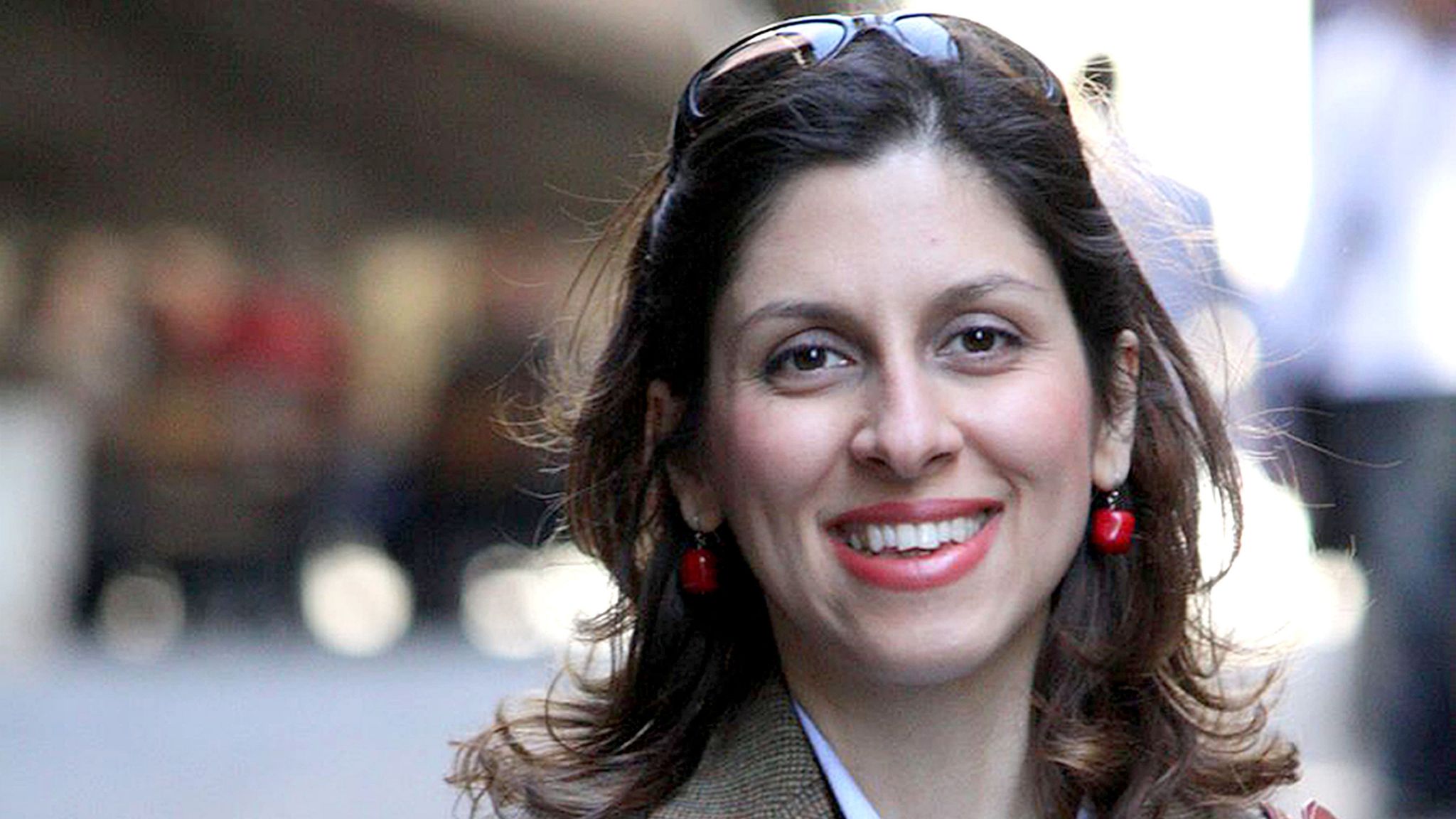
That was the last time he saw his wife in person.
Nazanin was arrested by members of Iran’s Revolutionary Guard at Tehran Airport as she prepared to fly home. Since then, she’s endured eight months of solitary confinement, blindfolded interrogations, hunger strikes to press for medical treatment, false promises of release, and almost five years of separation from her family.
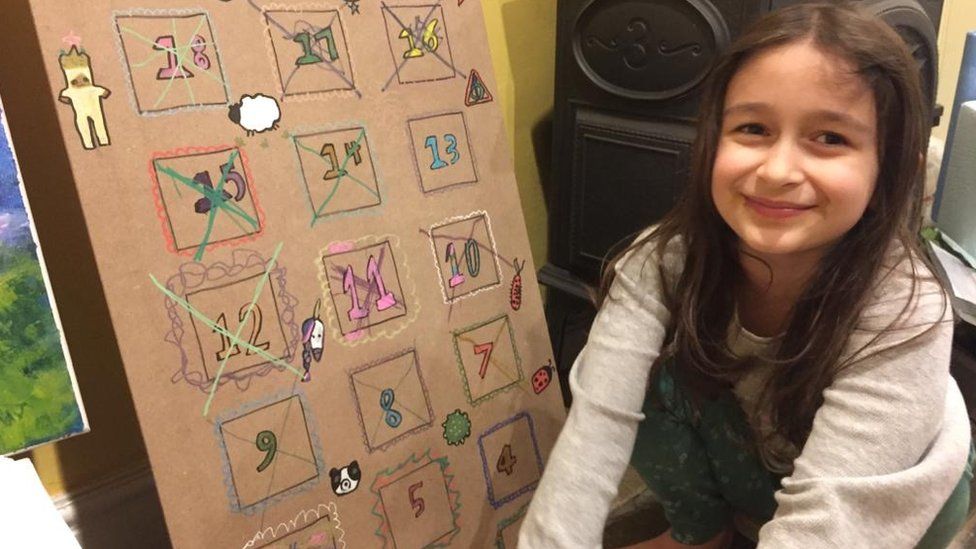
“At the beginning, I just thought that this was so profoundly unfair that if we just shouted it from the rooftops, the right people would intervene and it would get sorted,” Mr Ratcliffe told me. “Never in my imagination did I think this would take five years or more.”
He adds: “Now the end of her actual sentence – which was once the worst-case scenario – looks like a good outcome, at this point.”
At a secret trial in 2016, Ms Zaghari-Ratcliffe was sentenced to five years in jail for “membership of organisations working against the Iranian state” – a reference, her husband says, to her work for the charities BBC Media Action and the Thompson Reuters Foundation. And no, she wasn’t training journalists at the time of her arrest.
Sunday 7 March is the official date of her release – her lawyer has seen it marked in the computer of the Iranian judiciary. She’s been counting down the weeks on a calendar at her parents’ home, where she is now under house arrest with an ankle tag.
But her husband – who has fought an extraordinary, high-profile campaign for her release – doubts that she will be allowed to fly home.
He describes his wife as a hostage – used as a bargaining chip over a long-standing debt that Britain owes Iran for a tank deal that was never fulfilled.
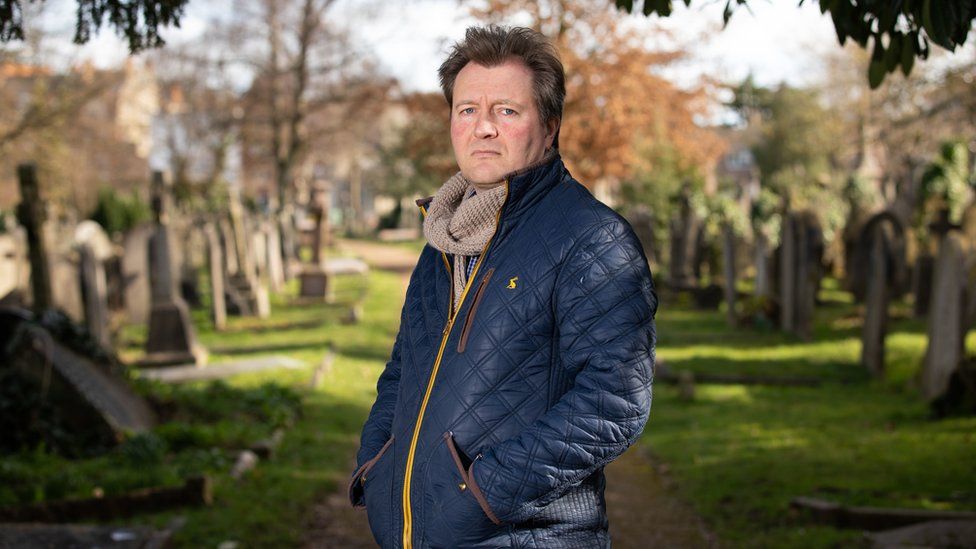
“The Revolutionary Guard have been completely consistent over the past five years – that they arrested Nazanin as leverage for the tank debt,” says Mr Ratcliffe.
“They’ve held her all the time that it’s not being paid. And I think that if the tank debt is not paid, not only will Nazanin and other dual nationals continue to be held but more collateral will be taken.”
Her case may also be caught up in negotiations over Iran’s nuclear deal, the JCPOA, which the UK is working with European allies to revive.
“There’s the potential for this to drag on and on,” says Mr Ratcliffe. “It’s perfectly possible that Nazanin gets a new court case thrown at her.
“The family have never seen a copy of the charges on which she was sentenced. There is no written documentation on anything. So they preserve the space to make it up as they go along at every stage.”
He worries about the impact that any prolongation of the family’s separation will have on both his wife and Gabriella, now six, who has also been counting down the days until her mother’s release – on a calendar she made herself.
She returned to the UK to live with her father and start school in October 2019, hoping that her mother would soon follow behind.
“Gabriella has been promised so many times that ‘Mummy is coming home soon,'” says her father.
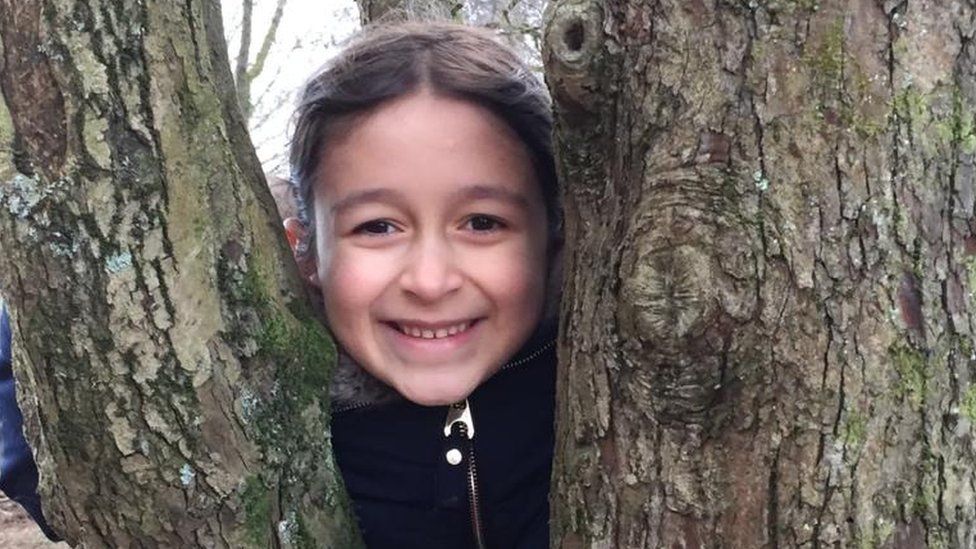
The darkest period for Nazanin herself came in 2016, when she was held alone in a dark room, incommunicado. Her interrogators told her, wrongly, that Richard was having affairs and that they had photographic evidence.
“I don’t think I can possibly understand what she’s gone through,” Mr Ratcliffe says.
“It’s a very practised technique of really breaking someone. That fear and abuse led her to feel suicidal. She said to me: ‘It would be better if I just died and you could get on with your lives.'”
In her first letter from jail to her husband, Ms Zaghari-Ratcliffe wrote in despair: “Every day and every second I would submerge more and more in an ocean of doubt, fear, threat, loneliness… my wails would go unheard in that tiny, dingy, cold, grey cell.”
Being parted from her daughter for so long has been a source of agony and guilt.
She apologised to her daughter from jail, saying: “Forgive me for all the nights I was not by your side to hold your warm, little hand till you fall asleep.
“Forgive me for all those moments you missed the bosom of your mother, for all those teething fever nights that I was not there for you; forgive me.”
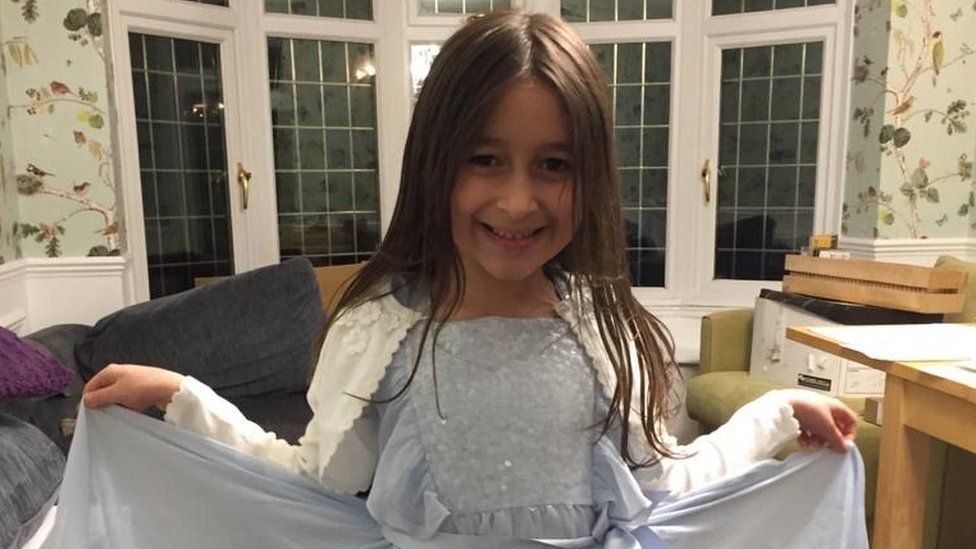
Separated by thousands of miles, the family now speaks twice a day over Skype.
Ms Zaghari-Ratcliffe, who is now 42, watches Gabriella draw and they play games together.
Gabriella looks forward to swimming with her mother, and going to a toy shop – one day.
The couple hope to have another child, but fear that time may now be against them.
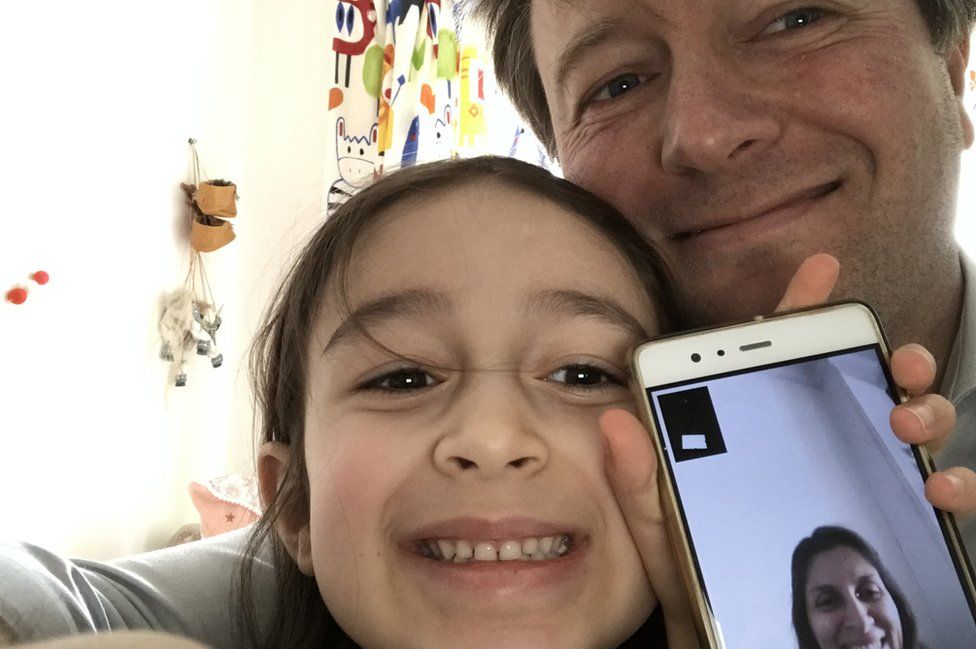
Late last month, Foreign Secretary Dominic Raab, phoned Ms Zahari-Ratcliffe in Tehran, reassuring her that the government is doing all it can to bring her home, but managing expectations of an imminent release.
The Foreign Office says that she and other dual British-Iranian nationals are “arbitrarily detained” by the Iranian government. It adds: “We do not accept Iran detaining dual nationals as diplomatic leverage.”
But Mr Ratcliffe has been critical of the UK government’s approach.
“Not to do anything that’s going to rock the boat means there’s no cost whatsoever to the hostage takers to continue the practice and to continue to wait,” he says.
“And so both sides can wait each other out because they’re not the ones bearing the cost of the waiting – whereas the victim and the family certainly are.”
As for what might happen on Sunday and over the next few months, Richard says, stoically: “Fate will deal us the hand it deals us. But one day the sun will come.”